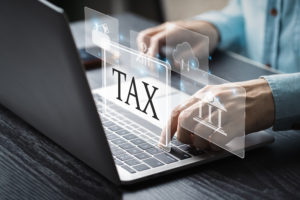Thailand has been a cash-driven society for many years. But over the past 8 years the payment systems landscape has changed massively and presented consumers with a number of alternative ways to pay for goods and services.
Crypto: Thailand, a leading adopter of emerging payment methods in Asia-Pacific
With a large choice of payment going from contactless payments to mobile wallets and QR codes, the way Thailand spends its money is evolving:
- QR Code Payment
- Government PromptPay
- Mobile Banking & Wallets
- Rabbit LINE Pay
- 7-Eleven App Wallet
- and more…
As any other country in the world, Thailand’s economy has been severely hit by the pandemic. However, as the population has been encouraged to stay at home, digital purchases have quadrupled since before the health crisis.
Since the pandemic started in March 2020, there was an increase of 30% in digital service consumers in Thailand and of 90% in terms of internet consumption, the second highest in the region after Singapore. According to the World Bank household phone survey report, the pandemic has accelerated the adoption of digital technologies in Thailand, in response to the extended mobility restrictions and to keep operations running.
Indeed, about 70% of Thai bank account holders have signed up for PromptPay, which is also used by small retailers who no longer need to handle cash. And the number of daily transactions made via that platform currently averaged 30,2 million (vs 14.5 million in 2020).
And the enthusiasm is not slowing down. According to the “Mastercard New Payments Index”, 96% of respondents in Thailand said they would consider using at least one emerging payment method — such as QR codes, digital or mobile wallets, instalment plans, cryptocurrencies or biometrics — in the coming year.
Thailand plans to boost tourism through bitcoin holders
Tourism is one of the country’s most important economic sectors, contributing nearly 20% to the GDP and sustaining 21% of employment in 2019, according to the World Travel and Tourism Council.
Thailand hosted nearly 40 million foreign travelers who generated over US$56 billion for the country in 2019. But with borders locked, bars and restaurants closed, as well as all non-essential shops, the tourism-dependent nation has lost an estimated $ 80 billion in revenue following the pandemic. The recovery is projected to be slow and uneven.
In line with these data, the government and more specifically the Tourism Authority of Thailand (TAT) have been working on a recovery plan to attract new investors in this new economic landscape: digital nomads and wealthy crypto currency traders.
According to the Kasikorn Research Center, there are around 1,379,373 cryptocurrency trading accounts in the Thai market, and this number is currently experiencing an explosive monthly growth rate in the Thai market, growing by 27.6% month-to-month.
The reports says that:
- 69.4% of the respondents reportedly know about cryptocurrencies,
- 52% of them were interested in investing in them,
- 42% of respondents that haven’t invested in cryptocurrencies have also expressed interest in investing in digital currencies next year
Crypto tourism to revive industry
This reflects the growing popularity of such trading and suggests a surge of cryptocurrency traders in the near future which will bring a rise in popularity.
In its efforts to ease digital spending from elite travelers, the TAT governor, Yuthasak Supasorn, is currently working with regulators and Bitkub, the country’s largest crypto exchange, to begin accepting digital coins for travel. By using Bitcoin and other cryptocurrencies, travelers can make payments seamlessly while avoiding high ATM fees, currency conversion rates, etc.
“There are people who have become wealthy from holding digital currencies and they may want to use the wealth they have accrued,” Supasorn said. “If they can use their currencies here without having to exchange it, or be faced with government taxes, then it would create convenience for them.”
Digital assets are not legal tender in Thailand and there are very few places that accept Bitcoin. So as part of this new “cryptourism” initiative, The TAT is also in the process of launching its own token called TAT Coin to attract digital nomads.
“Crypto is the future, so we must make Thailand a crypto-positive society to welcome this group of quality tourists,” Supasorn said.
Cryptocurrency holders and digital nomads could boost Thailand’s real estate
In its effort to boost the economy, Thailand is also working on making easier visa requirements for different kinds of foreign workers groups, including digital nomads.
Indeed, as Club Med elected Thailand as the top country for digital nomads based on cost of living, safety, and internet speeds, they will become a variant to stimulate trading in the country, and the country is betting on that.
Thailand has recently approved the digital nomad visa, along with 3 other new types of visas. And, for those interested in gaining a digital nomad visa must show proof of:
- earning $40,000 USD per year,
- having health insurance coverage of at least $100,000 USD.
Many real estate developers are already offering cryptocurrency as an alternative payment method to increase sales.
Atanop Phanthukom, the CEO of Cissa Group, an investment property developer in southern Thailand, says cryptocurrency investors are on the rise.
“Most investors are considered a new generation, which real estate business should not be overlooked, especially foreign investors who get a return from investing and are looking for long-term investments. Real estate is definitely the right answer. If this group of people can be attracted to buy real estate in Thailand, it will generate a huge income.”
Currently, there are still many obstacles for foreign investors to spend their digital assets in the Kingdom (visa requirements, taxation, property legislation, lack of crypto-friendly infrastructures…), but many decisions are being made to stimulate trading in the country.
Looking to create your company and invest in Thailand? Gorioux can assist you from A to Z for the creation of your business in Thailand. Do not hesitate to contact us for a free consultation: info-siam@gorioux.com




